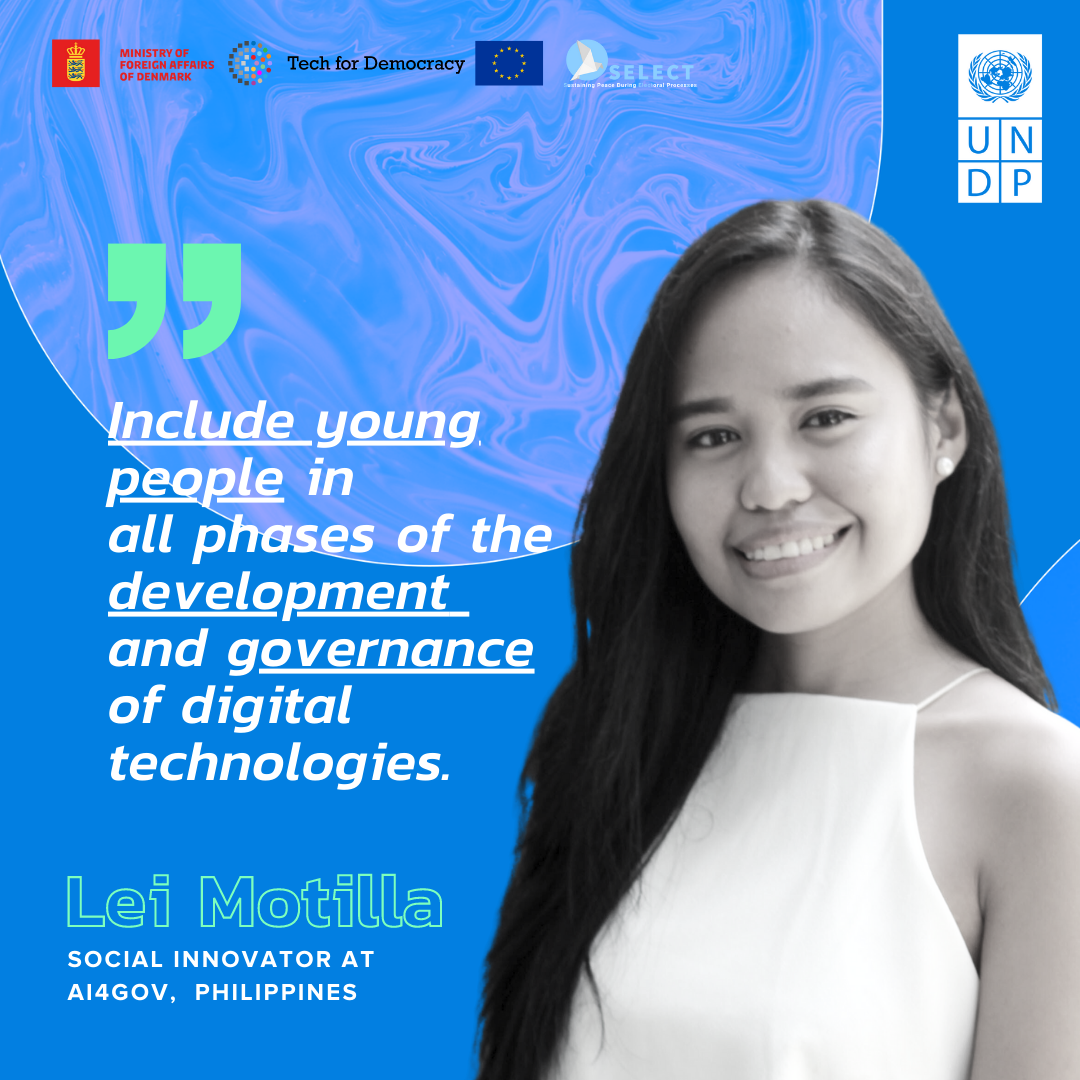Harnessing the power of AI through inclusion with Lei Motilla.

Lei is the co-founder and lead social innovator at AI4Gov. She is a young leader from the Philippines, specializing in applied AI for the public sector. She finds inspiration in blending advanced technologies with community organizing together with a team of fellow young leaders with multi-disciplinary skills. She believes that digital technologies, especially Artificial Intelligence, can be used strategically to ensure meaningful youth engagement in democratic institutions.
Her reasoning is two-fold. Firstly, Lei believes that AI is a tool that can facilitate and enhance the work of youth activists and development practitioners. Secondly, digital technologies, including AI, can contribute to enhancing democratic institutions, processes, and practices.
She provides a number of examples based on her own experiences and field work:
“AI can help governments make better decisions by analyzing large amounts of data and identifying patterns that humans may miss, thereby informing decision-making and resource allocation more effectively.”
It can further contribute to the development of innovative solutions to social and environmental challenges, Lei highlights. Moreover, AI can enable youth activists to communicate and organize effectively, particularly in the age of digital and social media. From her field work Lei has found that social media can be used to mobilize people around specific issues and events.
However, she adds a word of caution, highlighting it is important to ensure that these technologies are used ethically and with consideration for human rights and privacy. Lei warns us of the potential risks and challenges posed by AI, such as biases, privacy concerns, and discrimination. Therefore, it is important to ensure that AI is developed and used in a responsible and ethical manner, with participation and input from diverse stakeholders, including youth.
It is also crucial to promote digital literacy to ensure that people can effectively use these technologies and understand their implications, given the vulnerabilities and risks digital technologies expose young people to. Furthermore, while mobile access is increasing, meaningful and productive access is yet to be achieved.
“There is so much more that can be done than just being connected and looking at social media. Hence digital literacy is needed to ensure that access is not just reserved for entertainment purposes.”
Finally, an important obstacle underlined by Lei, beyond lack of infrastructure and connectivity, is the feeling of isolation that digital technology can cause without an effective support system, digital skills and meaningful inclusion.
Consequently, Lei urges policymakers to involve an equitable set of diverse young people from design to evaluation to governance of digital initiatives. Lei believes that digital literacy should be part of the basic curriculum across the globe. If young people are not part of the decision-making process, then the future regulations and policies surrounding AI and digital technologies may not adequately represent the emerging users of digital technologies, such as Gen Z. Only through a bottom-up approach that decentralizes co-ownership, co-creation, and co-evaluation with inclusive participation of youth can we shape youth-sensitive AI for social good.
To young people who wish to use AI for social good, Lei advises to start by learning about AI and its potential applications in different fields, after which they can identify a social or environmental issue that they are passionate about and explore how AI can help address it. They can collaborate with other like-minded individuals or organizations and leverage existing resources, such as open-source software and data, to develop and implement their solution.
